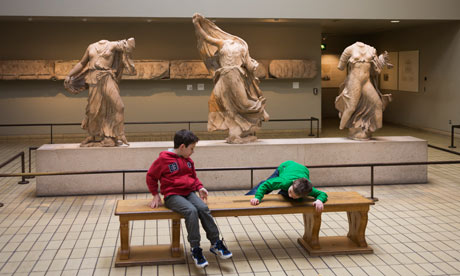ARABIC ETYMOLOGY////// إتيمولوجيا// HISTORY///MYTHOLOGY///LANGUAGES OF THE PAST///SCRIPTS OF THE PAST/// COSTAS LEVENTOPOULOS
Thursday, 17 January 2013

JUPITER LAGONISI /ATHENS 7/7/2009
WIKIPEDIA
The planet Jupiter has been known since ancient times. It is visible
to the naked eye in the night sky and can occasionally be seen in the
daytime when the sun is low.[131] To the Babylonians, this object represented their god Marduk. They used the roughly 12-year orbit of this planet along the ecliptic to define the constellations of their zodiac.[23][132]
The Romans named it after Jupiter (Latin: Iuppiter, Iūpiter) (also called Jove), the principal god of Roman mythology, whose name comes from the Proto-Indo-European vocative compound *Dyēu-pəter (nominative: *Dyēus-pətēr, meaning "O Father Sky-God", or "O Father Day-God").[133] In turn, Jupiter was the counterpart to the mythical Greek Zeus (Ζεύς), also referred to as Dias (Δίας), the planetary name of which is retained in modern Greek.
MYTHOLOGY
In the ancient Greek religion, Zeus (Ancient Greek: Ζεύς, Zeús; Modern Greek: Δίας, Días) is the "Father of Gods and men" (πατὴρ ἀνδρῶν τε θεῶν τε, patḕr andrōn te theōn te)[3] who rules the Olympians of Mount Olympus as a father rules the family. He is the god of sky and thunder in Greek mythology. His Roman counterpart is Jupiter and Etruscan counterpart is Tinia.
Zeus is the child of Cronus and Rhea, and the youngest of his siblings. In most traditions he is married to Hera, although, at the oracle of Dodona, his consort is Dione: according to the Iliad, he is
the father of Aphrodite by Dione.[2] He is known for his erotic escapades. These resulted in many godly and heroic offspring, including Athena, Apollo and Artemis, Hermes, Persephone (by Demeter), Dionysus, Perseus, Heracles, Helen of Troy, Minos, and the Muses (by Mnemosyne); by Hera, he is usually said to have fathered Ares, Hebe and Hephaestus.[4]
WIKIPEDIA
Mythology
The Romans named it after Jupiter (Latin: Iuppiter, Iūpiter) (also called Jove), the principal god of Roman mythology, whose name comes from the Proto-Indo-European vocative compound *Dyēu-pəter (nominative: *Dyēus-pətēr, meaning "O Father Sky-God", or "O Father Day-God").[133] In turn, Jupiter was the counterpart to the mythical Greek Zeus (Ζεύς), also referred to as Dias (Δίας), the planetary name of which is retained in modern Greek.
MYTHOLOGY
In the ancient Greek religion, Zeus (Ancient Greek: Ζεύς, Zeús; Modern Greek: Δίας, Días) is the "Father of Gods and men" (πατὴρ ἀνδρῶν τε θεῶν τε, patḕr andrōn te theōn te)[3] who rules the Olympians of Mount Olympus as a father rules the family. He is the god of sky and thunder in Greek mythology. His Roman counterpart is Jupiter and Etruscan counterpart is Tinia.
Zeus is the child of Cronus and Rhea, and the youngest of his siblings. In most traditions he is married to Hera, although, at the oracle of Dodona, his consort is Dione: according to the Iliad, he is
the father of Aphrodite by Dione.[2] He is known for his erotic escapades. These resulted in many godly and heroic offspring, including Athena, Apollo and Artemis, Hermes, Persephone (by Demeter), Dionysus, Perseus, Heracles, Helen of Troy, Minos, and the Muses (by Mnemosyne); by Hera, he is usually said to have fathered Ares, Hebe and Hephaestus.[4]

- The constellation URSA MAJOR/Big Dipper LAGONISI/ATHENS
WIKIPEDIA
THE MYTH
The great Zeus fell madly in love with Callisto, the beautiful huntress nymph inhabitant of the forests of Arcadia. The father of the gods seduced the nymph, and she became pregnant. Upon learning what happened Hera, wife of Zeus, prey of jealousy, turned Calisto into a bear (Great Bear OR URSA MAYOR).
Over time, Arkas, the son of Calisto, also a hunter, one day came across a bear and wanted to kill it, not knowing it was his mother. Zeus intervened and revealed the truth. For that not to happen again, Zeus took Callisto, turned into a bear, from her tail and threw her into the sky, also transformed Arkas into a bear and put him in heaven with her mother to keep her company. Arkas is the constellation of Ursa Minor (the Little Bear).
But Hera, wife of Zeus, was not happy and asked her brother, Poseidon, to not allow the heavenly bears, Calisto and Arkas, to approach to his marine domains. Then, The Great Bear and the Little Bear never disappear beneath the sea.
WIKIPEDIA
This constellation is identified with the Great Bear from the time of Homer, who already quoted it in his major works, The Iliad and The Odyssey calling it Bear and Cart.
Subscribe to:
Comments (Atom)

